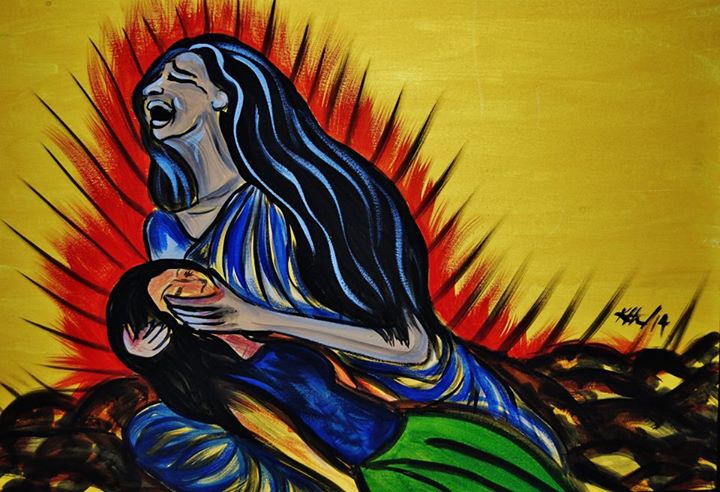Reports that the United Nations has begun drawing up plans for the Sri Lankan government to lead a purely domestic mechanism into the mass slaughter of Tamils have widely, and rightly, been met with dismay by the victims. Sri Lanka has shown it cannot effectively deliver justice to those who have suffered – a fact that becomes ever more apparent 6 years since the end of the armed conflict. With elections looming and the release of a much awaited OISL report just weeks away, the international community and UN cannot waver on their obligations to the victims. A comprehensive internationalised justice mechanism to deal with the prosecution of those responsible for violations of international humanitarian law must take place. Anything less would be a failure in justice.
The leaked document proposes the Sri Lankan government takes responsibility for investigating and punishing any crimes committed, with the UN confined to providing “technical assistance”. This is an untenable position for the global body to hold. The government expresses no desire to meet victims’ aspirations for justice and instead security forces continue to engage in human rights violations, undermining any credibility it attempts to project. Nothing highlights this more than the timely release of a report by the International Truth and Justice Project last week. It revealed in painstaking detail the “multifaceted assault of terror” that continues on the ground, despite the much lauded change in government earlier this year. In this environment, alongside Sri Lanka’s torturous history of failed domestic enquiries and the sheer gravity of war time abuses, which the Northern Provincial Council (NPC) has condemned as a genocide, a domestic justice process is a futile exercise.
Tamils have no hope for justice in any domestic mechanism, whether conducted by the Rajapaksa regime, Sirisena regime, or any successive Sinhala majoritarian government. The NPC resolution, which denounced the long history of anti-Tamil violence as genocide, and sustained Tamil protests calling for international accountability aptly demonstrate this. Meanwhile, Sri Lanka's political leadership continue to publicly refute UN figures of the civilian death toll and army generals suspected of breaking international humanitarian law have been promoted by the new government. Recent campaigns by Sinhala parties also highlights the widespread and vehement opposition to any international justice mechanism. The Sinhala political spectrum, from left to right, has rallied together to proclaim their defence of those who bear chief responsibility for the crimes of 2009 from facing trial, including the president himself.
In this context, member states responsible for leading the formation of the OISL must remain firm. The postponement of the OISL report, which disappointed many who believed it was a key step towards justice, was made with a pledge by the UN human rights chief “to act as a strong voice on behalf of victims”. Reports that UN officials had attempted to strong arm Tamils into swallowing a domestic mechanism belies the UN's public rhetoric of the necessity for a victim based approach to justice and reconciliation in Sri Lanka. The entire process, shrouded in secrecy and drawn up without adequate consultation of those affected, only adds to victims’ wariness of a global body that failed so miserably in preventing the deaths of their kith and kin. As the Chief Minister of the Northern Province C V Wigneswaran put it, the victims themselves must decide on a future mechanism. And the victims remain unflinching in their demand, as marked by the sustained demonstrations that have surged across North-East.
This week the demand for an international justice mechanism was unanimously endorsed by all Tamil political parties competing in the North-East. The omission of the explicit articulation of this demand from the TNA manifesto though, was glaring - a deliberate move that provides space for the party to fall short of pledges made to its electorate. Given the campaigning the party has done on the premise that it orchestrated work towards an international process at Geneva, the omission raises questions with regards to how consistent it is at articulating Tamil aspirations in all political fora. Their words must be followed by action, else it will simply be yet another hollow promise made purely for electoral gains.
As the UN's own review of its conduct during the conflict concluded, the body failed to respond in the face of overwhelming evidence that massacres were occurring in 2009. A domestic inquiry would be yet another failure, furthering impunity and exacerbating the simmering crisis on the island. Meaningful accountability is crucial in restoring Tamils' much worn faith in the international community and to ensure a just and peaceful future. There can be no compromise. The United Nations and member states must reflect on the lessons born out of Mullivaikkal. Past failures must be set right and justice that is long overdue finally served.
 Illustration by Keera Ratnam |
